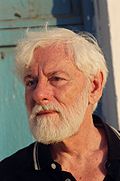In Lebanon, the answer was a delicate structure of a state based on a balance between the communities. Each person "belongs" to a community. In practice everyone is the citizen of his community, and the state is but a federation of communities.
(This is partly an inheritance from the Byzantine and Ottoman empires, but without an emperor or a sultan. It exists in Israel, too -- Jews, Sunnites, Druze and Christians have their own courts for personal status affairs and cannot inter-marry.)
The Lebanese system is a negation of "one person -- one vote" democracy, but it has survived a vicious civil war, several massacres, a number of Israeli invasions and a shift of the Shiites from last to first place. It is more robust than might have been supposed.
The Syrian solution was very different -- dictatorship. A series of strongmen followed each other, until the al-Assad dynasty took over. Its surprising longevity arises from the fact that many Syrians of all communities seem to have preferred even a brutal tyrant to the breakup of the state, chaos and civil war.
NO MORE, it seems. The Syrian Spring is an offspring of the Arab Spring, but under very different conditions.
Egypt is far too different from Syria to allow a comparison. The unity of Egypt has been unquestionable for thousands of years. Egyptian national pride is almost tangible. The question raised by Israeli commentators, whether the new President is first of all a Muslim Brother or first of all an Egyptian, sounds gratuitous to an Egyptian. The Egyptian Muslim Brotherhood is, or course, first of all Egyptian. So are Egyptian Copts, the sizable Christian minority. (Their name, like the word Egypt itself, derives from the ancient name of the country.)
The unity of Egypt, like that of Tunisia and even Libya, after the overthrow of the dictators, is evidence of the national consciousness of these peoples. This is not a given in Syria.
If the Monster of Damascus is finally removed, will Syria survive?
All over the West, and in Israel, pundits gleefully foretell that the country will break into pieces, more or less on the lines of the French colonial precedent.
This is quite possible. One of the few options left to Bashar al-Assad is to gather the Alawis in his army and retreat to the Alawi redoubt in the Northwest of the country, cutting it off from the rest of Syria.
This would lead to much bloodshed. The Alawis would certainly drive out all the Sunnis from their region, and the Sunnis would drive the Alawis out of all the other regions. It could resemble the horrible events in India during the partition of the sub-continent and the creation of Pakistan, if on a much smaller scale .
The Druze in the south of Syria would then found their own state (an old dream in Israel). The Kurds in the north-east would do the same, perhaps to join the neighboring Kurdish semi-state in Iraq, a Turkish nightmare. What would be left of Syria would be the eternally competing cities of Damascus and Aleppo.
Possible, but certainly not inevitable. It would be a supreme test of Syrian nationalism. Does it exist? How strong is it? Strong enough to overcome the separatism of the communities?
I would not dare to prophesy. I can only hope. I hope that the diverse elements of the Syrian opposition unite enough to win the present brutal civil war and create a new Syria.
Unlike most Israeli commentators, I am not afraid of the "Islamization" of Syria. True, the Syrian Muslim Brotherhood has always been more violent than the Egyptian parent organization. By their actions at the time they helped to provoke the terrible massacre in Hama perpetrated by Hafez al-Assad. But political power has a moderating effect, as we are seeing in Cairo.
FOR ME, one riddle remains. I see on the internet that many well-meaning people around the world, especially on the left, support Bashar.
(Note: You can view every article as one long page if you sign up as an Advocate Member, or higher).





